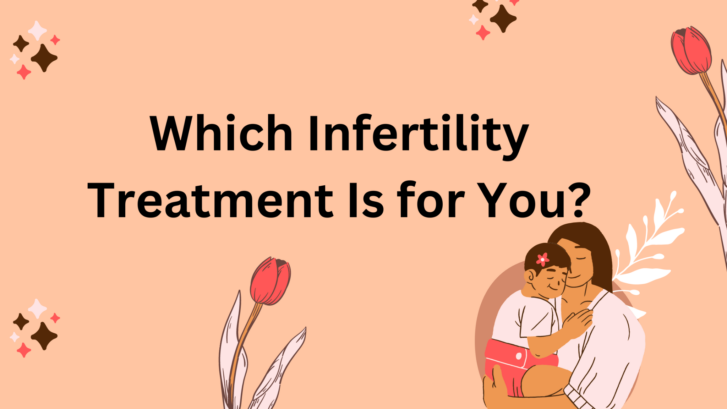Which Infertility Treatment Is for You?
Infertility is a complex and challenging issue that many couples face when trying to conceive. It can be a difficult and emotional journey, but thanks to advancements in medical technology and treatment options, there is hope for those struggling with infertility. In this article, we will explore various infertility treatment options available today and help you determine which one may be the most suitable for you.
Understanding Infertility
Before diving into the different treatment options, it’s important to understand what infertility is and what causes it. Infertility is generally defined as the inability to conceive after a year of unprotected intercourse. Both men and women can contribute to infertility, and it can be caused by various factors such as hormonal imbalances, structural issues, or reproductive disorders.
Seeking Professional Help
If you and your partner have been trying to conceive without success for a significant period, it is advisable to seek professional help. A fertility specialist or reproductive endocrinologist can assess your situation, conduct necessary tests, and provide guidance on the most suitable treatment options for your specific case.
Fertility Medications
In some cases, infertility can be treated with fertility medications. These medications work by regulating hormone levels and stimulating the ovaries to produce eggs. Commonly used fertility medications include Clomiphene citrate (Clomid) and Gonadotropins. These medications are often the first line of treatment and can be effective for couples facing ovulation issues or hormonal imbalances.
Intrauterine Insemination (IUI)
Intrauterine insemination, or IUI, is a fertility treatment that involves placing sperm directly into the uterus to increase the chances of fertilization. This procedure is often recommended for couples with unexplained infertility, mild male factor infertility, or cervical issues. IUI is a less invasive and more affordable option compared to more advanced treatments like in vitro fertilization (IVF).
In Vitro Fertilization (IVF)
In vitro fertilization, commonly known as IVF, is one of the most well-known and widely used infertility treatments. It involves retrieving eggs from the woman’s ovaries, fertilizing them with sperm in a laboratory setting, and then transferring the resulting embryos back into the woman’s uterus. IVF is suitable for various infertility causes, including blocked fallopian tubes, severe male factor infertility, or unexplained infertility.
Intracytoplasmic Sperm Injection (ICSI)
For couples facing severe male factor infertility, Intracytoplasmic Sperm Injection (ICSI) can be a viable treatment option. ICSI involves injecting a single sperm directly into an egg to facilitate fertilization. This technique allows couples with male infertility issues, such as low sperm count or poor sperm motility, to achieve successful fertilization and increase their chances of pregnancy.
Donor Egg or Sperm
In cases where a woman is unable to produce viable eggs or a man has no viable sperm, the use of donor eggs or sperm can be an option. Donor eggs or sperm can be obtained from screened and healthy individuals through a reputable fertility clinic. This option provides an opportunity for couples to experience pregnancy and have a child genetically related to one partner.
Preimplantation Genetic Testing (PGT)
Preimplantation Genetic Testing (PGT) is a technique used during IVF to screen embryos for genetic abnormalities before implantation. This testing helps identify embryos with the highest chance of developing into a healthy baby, reducing the risk of genetic disorders or chromosomal abnormalities. PGT can be particularly beneficial for couples with a known genetic condition or a history of recurrent miscarriages.
Acupuncture and Traditional Chinese Medicine
Acupuncture, a key component of Traditional Chinese Medicine (TCM), has gained popularity as a complementary treatment for infertility. This ancient practice involves the insertion of thin needles into specific points on the body to promote balance and restore energy flow. Some studies suggest that acupuncture may improve fertility outcomes by reducing stress, improving blood flow to the reproductive organs, and regulating hormone levels. Many individuals find acupuncture sessions to be relaxing and supportive during their fertility journey.
Nutritional and Lifestyle Changes
Making certain nutritional and lifestyle changes can have a positive impact on fertility. A well-balanced diet rich in fruits, vegetables, whole grains, lean proteins, and healthy fats provides the necessary nutrients for reproductive health. Regular exercise, stress management techniques, and adequate sleep can also contribute to overall well-being and fertility. Additionally, avoiding smoking, excessive alcohol consumption, and illicit drug use is crucial, as these factors can negatively affect fertility in both men and women.
Conclusion
Infertility can be a daunting journey, but with the advancements in medical technology and the wide range of treatment options available today, there is hope for couples struggling to conceive. From fertility medications to more advanced procedures like IVF and ICSI, each treatment has its benefits and considerations. It is essential to consult with a qualified fertility specialist to determine the most appropriate treatment option based on your unique circumstances.

